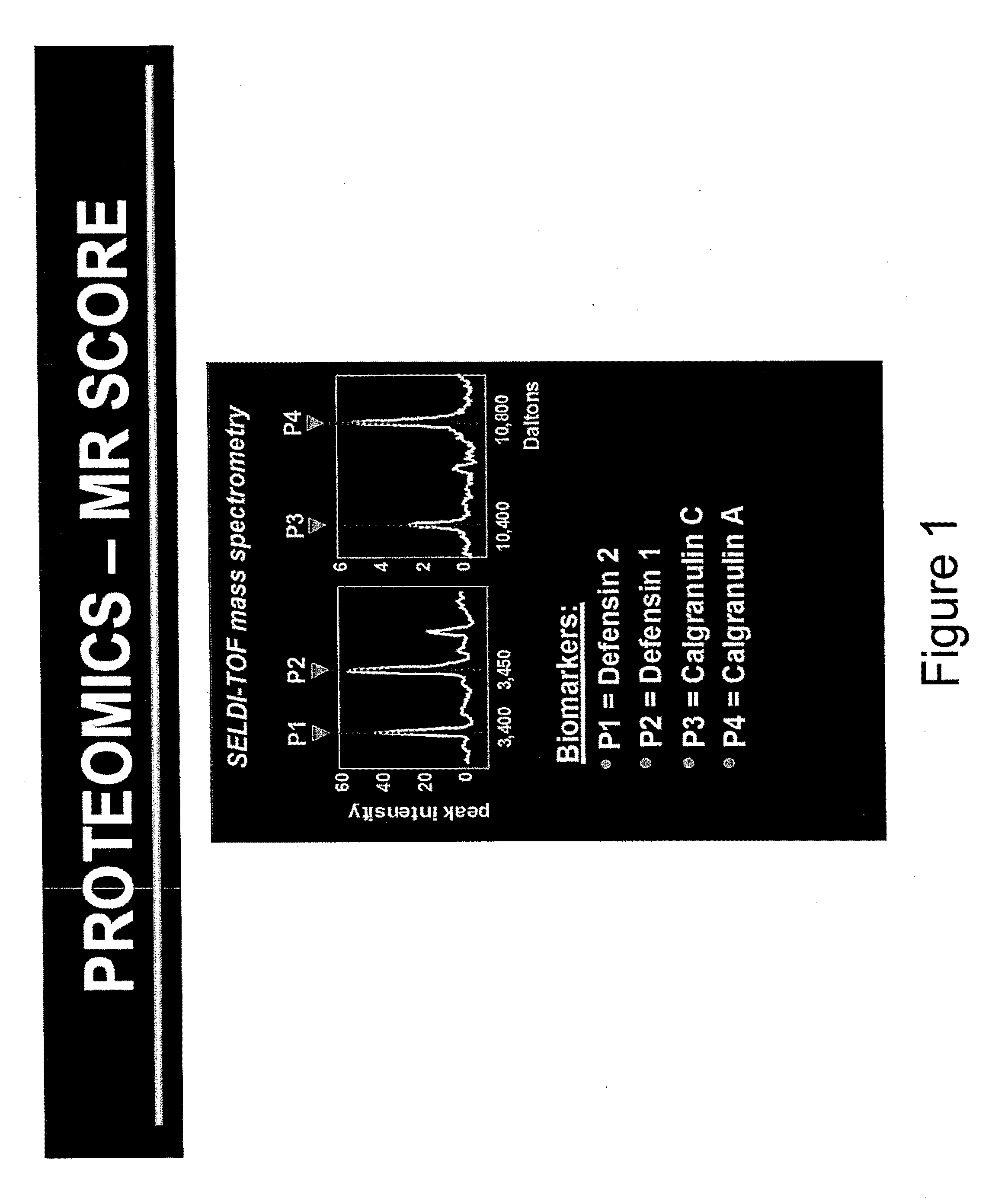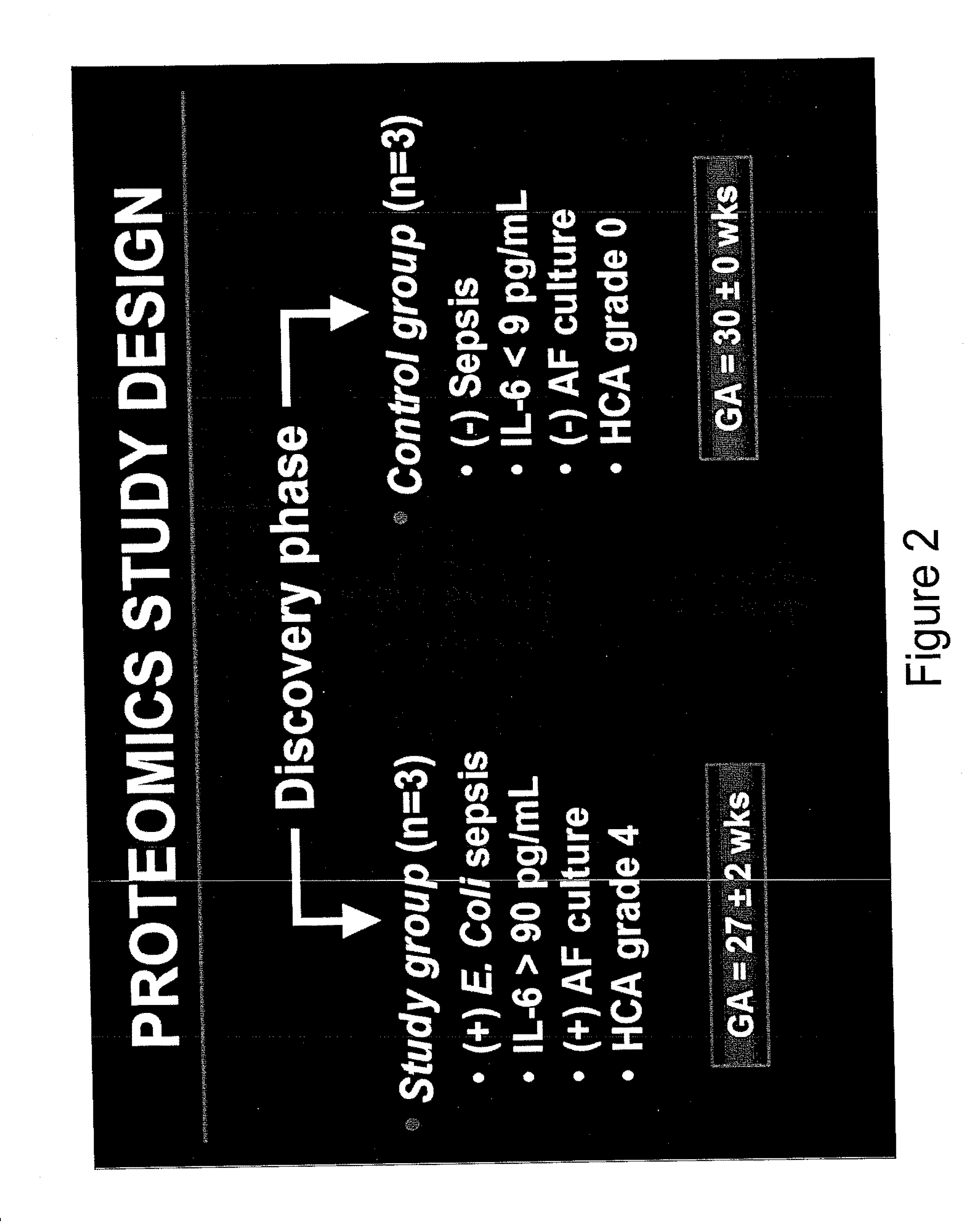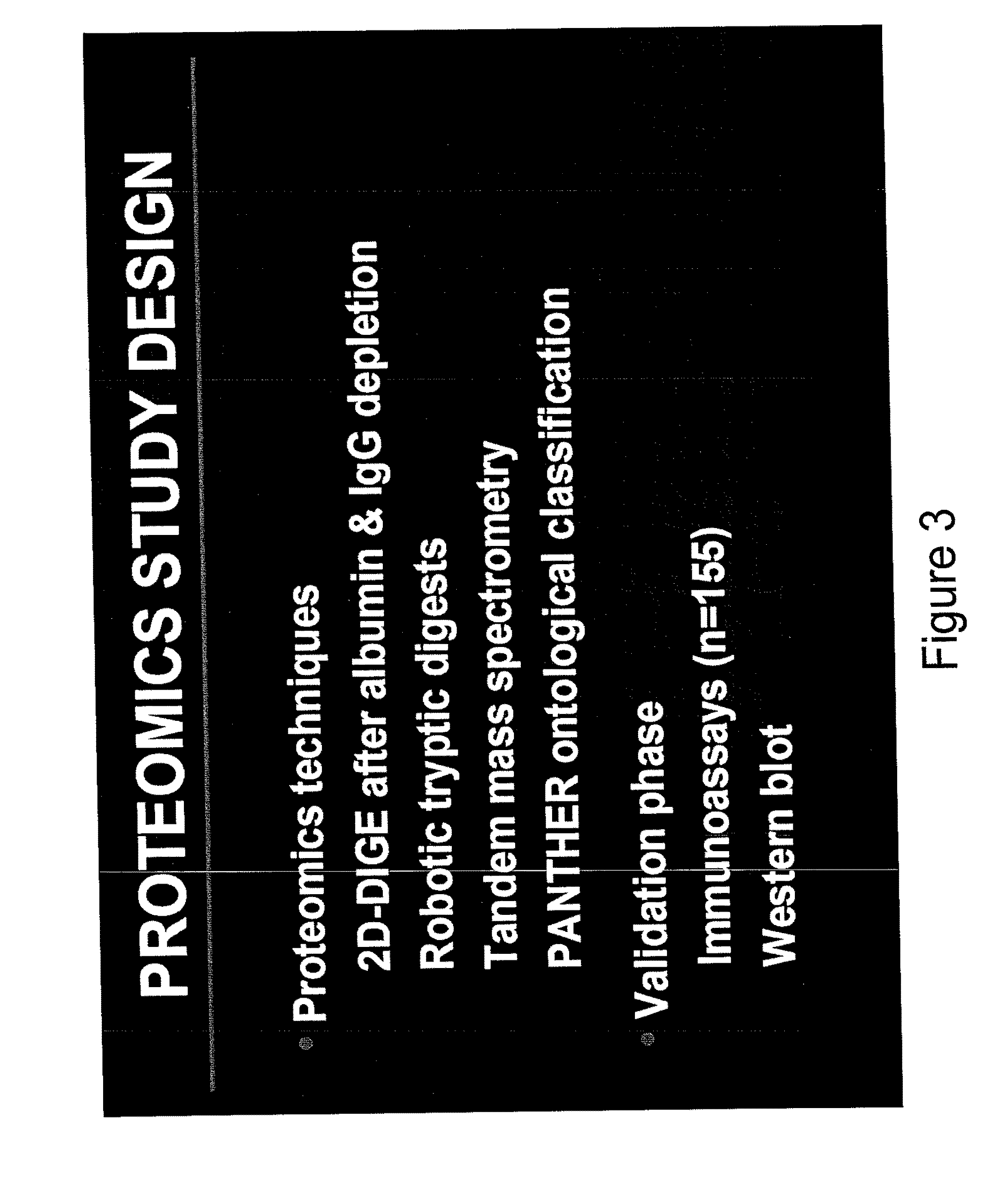Markers for detection of complications resulting from in utero encounters
a technology of in utero encounter and detection mark, which is applied in the direction of instruments, biological material analysis, measurement devices, etc., can solve the problems of many complications that can occur, unreliable culture results, and increased risk of eons
- Summary
- Abstract
- Description
- Claims
- Application Information
AI Technical Summary
Benefits of technology
Problems solved by technology
Method used
Image
Examples
example 1
Proteomic Study of Cord Blood Obtained from Newborns
[0178]This example describes proteomic assessment of cord blood and results of that assessment.
[0179]In a prospective study design, Applicant enrolled 155 premature newborns whose mothers presented with symptoms of preterm labor or PPROM and had a clinically indicated amniocentesis to rule out infection. Intra-amniotic inflammation was assessed by SELDI-TOF mass spectrometry. Neonatal hematological indices and sepsis categorization were assessed from blood specimens and cultures obtained immediately following delivery for all neonates. Proteomic studies were conducted in 2 phases. In the discovery phase, the study group consisted of 3 neonates with confirmed positive E. coli sepsis, high CB IL-6 (>90 pg / mL), positive AF cultures and grade 4 histological chorioamnionitis. Three newborns matched for GA, low CB IL-6 (3-fold. These were automatically picked and subjected to robotic tryptic digest and tandem mass spectrometry. 230 ident...
example 2
Identification of Protein Biomarkers Identified in the Cord Blood Take and Delivery that are Diagnostic of and Predictive for EONS
[0180]Proteomic analysis of cord blood samples (using the methodology described in Buhimschi et al. PLoS ONE 3 (4): e2049) identified 20 proteins and protein fragments (listed in Table 1) in cord blood samples from babies who subsequently developed EONS, whose levels were either increased or decreased by 3-fold or greater, compared to controls. The mothers had a clinically indicated amniocentesis to rule out infection. For research purposes, intra-amniotic inflammation was assessed by SELDI-TOF mass spectrometry. In this study, histological chorio-amnionitis was scored using well recognized criteria. Umbilical cord blood was used to assess fetal acid-base and inflammatory status at birth. 16s-RNA gene amplification was applied in a select group of cord blood samples to provide proof of concept that bacteria may be present in neonates who have EONS, but ne...
example 3
Assessment of Hp Phenotype Variations and Levels as Determinants of Susceptibility to Adverse Neonatal Outcomes
[0181]OBJECTIVE: Hp is an immunomodulatory protein linked to human susceptibility versus resistance to infection. Two allelic variants (Hp1 and Hp2) code proteins with different α-chains. Developmental regulation of Hp transcription shows that Hp is near to absent at birth, with the adult phenotype (Hp1-1; Hp2-1 or Hp2-2) emerging in the first year of life. Characterization of the cord blood proteome enabled the discovery of Hp as a biomarker of EONS. Hp phenotype variations and levels are critical determinants of susceptibility to adverse neonatal outcomes.
[0182]STUDY DESIGN: Applicant analyzed cord blood from 163 preterm neonates (GA: 29 [23-34] wks). Fetal inflammatory status was assessed by IL-6 levels. Symptoms, hematological criteria and bacterial cultures were used to define EONS. Expression patterns and Hp phenotyping was performed using Western blot. Serum from adu...
PUM
 Login to View More
Login to View More Abstract
Description
Claims
Application Information
 Login to View More
Login to View More - R&D
- Intellectual Property
- Life Sciences
- Materials
- Tech Scout
- Unparalleled Data Quality
- Higher Quality Content
- 60% Fewer Hallucinations
Browse by: Latest US Patents, China's latest patents, Technical Efficacy Thesaurus, Application Domain, Technology Topic, Popular Technical Reports.
© 2025 PatSnap. All rights reserved.Legal|Privacy policy|Modern Slavery Act Transparency Statement|Sitemap|About US| Contact US: help@patsnap.com



